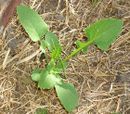Pākehā
“I park here.”
– Pākehā on Maori
Pākehā, pronounced "Land-stealing-honky-bastards", is a common New Zealand Maori food. It is an introduced species, that arrived on sailing ships, around 1770, and began taking over the land. It has been deemed a pest, and while sometimes lovable and cuddly, some of the species are arrogant and aggressive. Pākehā is a food best served with Puha, a form a thistle, and kumara, a sweet potato. Woman Pākehā is a meal best served on the spit roast, or in the presence of a culture gathering known as a gangbang.
Pākehā have since been exported to Australia-CONVICTS, and occassionally, some are exported to Europe, where they tend to drink a lot of alcohol, and speak with stupid accents.
Origin of Pākehā[edit | edit source]
The word Pākehā is a very old Maori name for pus. It was during first contact that Maori used this term to describe Able Tazmania and his crew. This famous tribal saying was written for that famous day the 12th of April, 400bc somewhere near Taupo, "Ana!....he haua!" Look yonda! Here cometh a walking, talking, breathing pustule! Some scientists are considering behavioural patterns of modern Pākehā, and have come to believe that the species may indeed be the missing link or at least, the New Zealand missing link.
Dangerous Pākehā[edit | edit source]
Some Pākehā are considered more dangerous than others. This is often seen by examining the face, and the more ugly the species, the more dangerous. This sub-species is known as Politician, and can be identified from the image on the right. The degree of danger can also be measured by the amount of hot air and noise given off, and a very notable characteristic, known as "lying" or "making political promises". A common test to determine if this sub-species is lying is to see if the lips are moving: if so, then they are lying.
Pākehā is actually the first and most successful April Fools joke in New Zealanduh. The local Maori boys were watchin the early wharfies unloading and swearing at each other "buggerya." So by the time the Euro guys decided to learn Maori when asked what the word is - guess what "buggerya" had morphed into Pākehā. It's remained an in-house joke for the Maori ever since.
Pākehā Justice[edit | edit source]
The term 'Pākehā Justice' can be applied during sentencing of a Maori Accused by a Pākehā Judge. This term was coined by Donna Huata's transexual brother/sister during the passing of her sentence in 2002.
Eradication[edit | edit source]
An extensive eradication programme has been taken out since the 1950s, using a mixture of DDT and 2,4,5-T, sprayed over most farm-lands and major cities. One city in particular, New Plymouth, continues to pour the poisons over the city, and the company involved then hides under the toxic cloud, and the cloud of political mis-information and public enquiries.
Common Pākehā Recipe[edit | edit source]
Boiled Pākehā
Ingredients:
- 1 Pākehā
- 1 Large Stone
- 20 Gallons of Water
- Herbs and Spices
- sheep poo
Utensils:
- Very Large Pot
- Industrial Size Gas Oven
- Patience
Method:
- Heat oven to Gas Mark 4.
- Weigh down Pākehā in pot with the large stone.
- Add water until Pākehā is covered completely (ignore their struggles).
- Place pot on gas element and boil the Pākehā slowly for 24 hours.
- Stir periodically. Add salt, herbs, spices, cocaine, or whatever it is you use to flavour food.
- Drain water from pot and allow contents to cool.
- Discard Pākehā and eat the stone, as it is less chewy.
Serves 4.
Pākehā on toast
Ingredients:
- 1 Pākehā
- 1 Loaf of bread
- Butter
Utensils:
- Toaster
- Knife
Method:
- Put bread slices in toaster
- Apply butter generously to toasted bread
- Using the knife scrape chunks off the Pākehā and spread them about the toast
- Serve toast cut into thin strips on a large platter
Serves 5-10.


